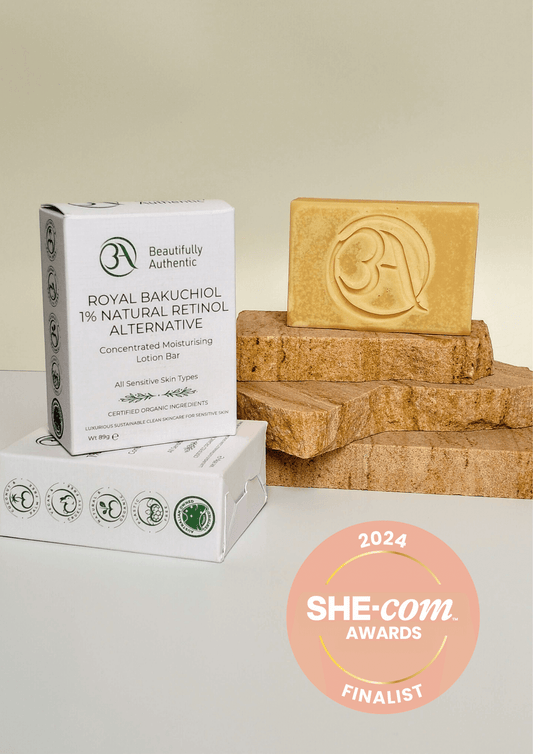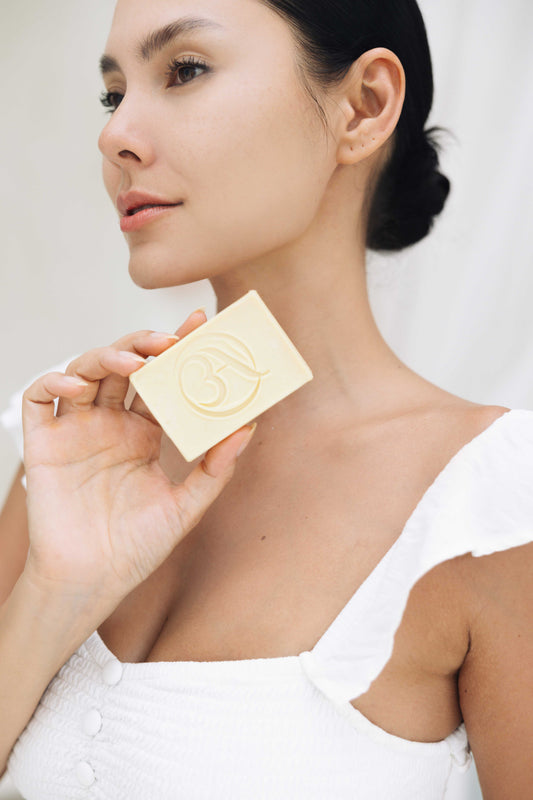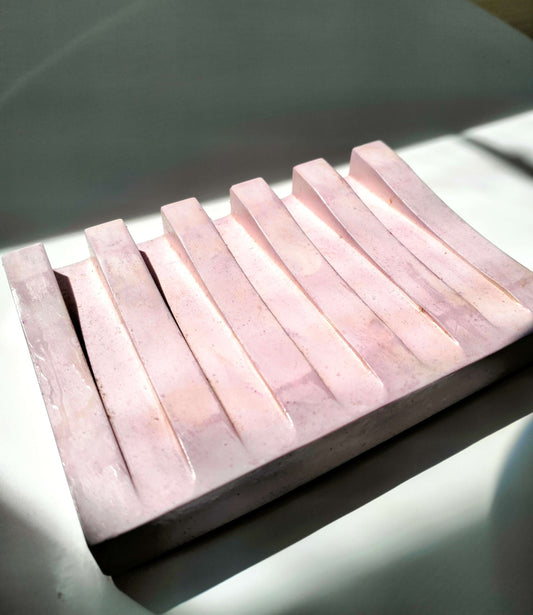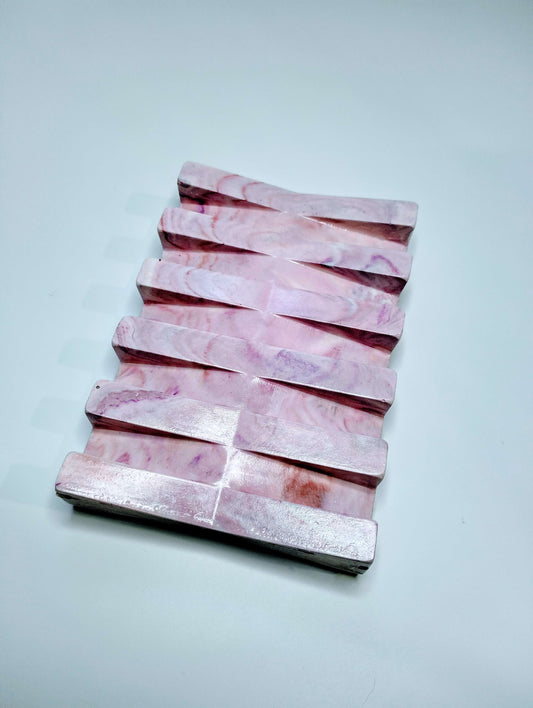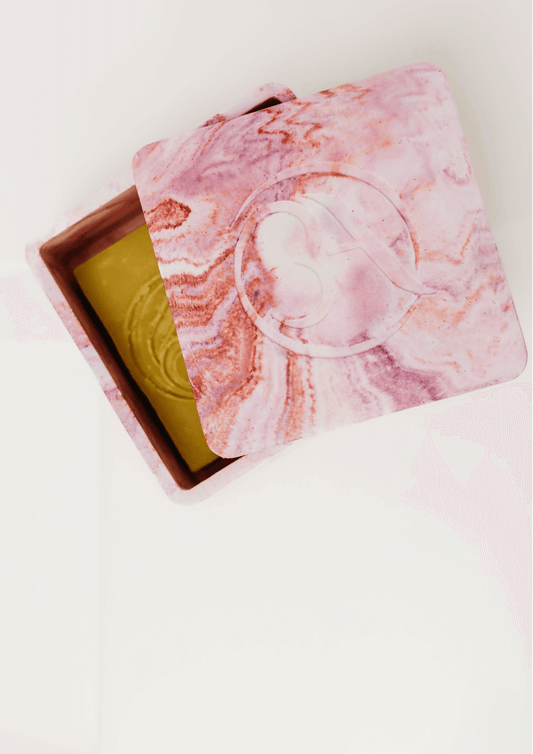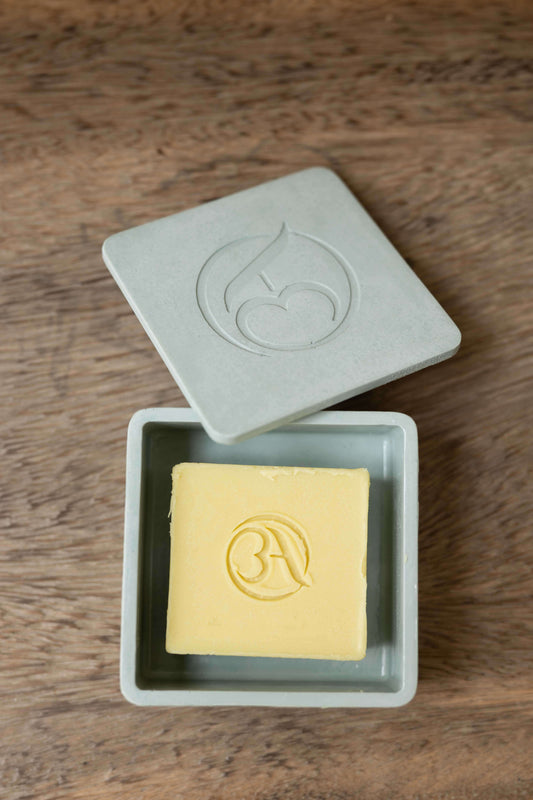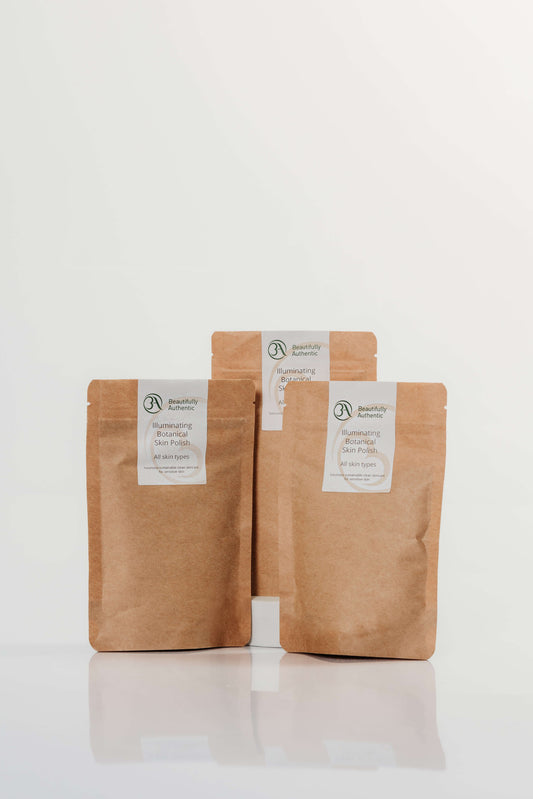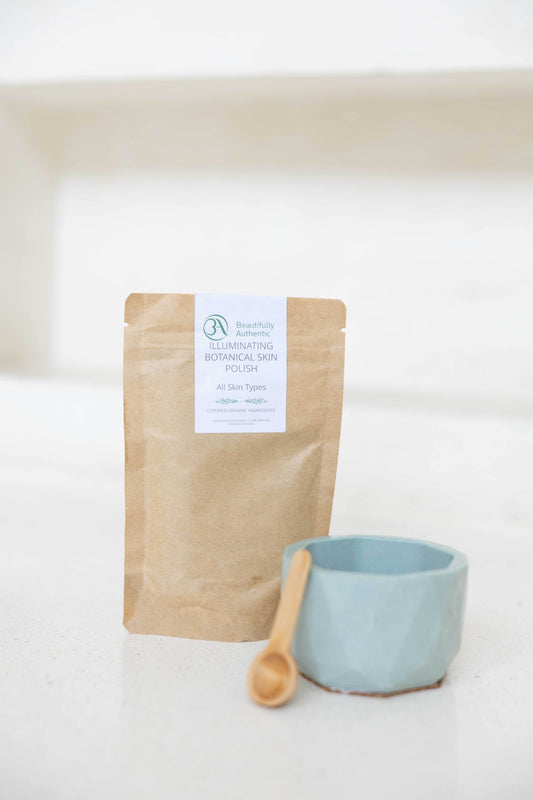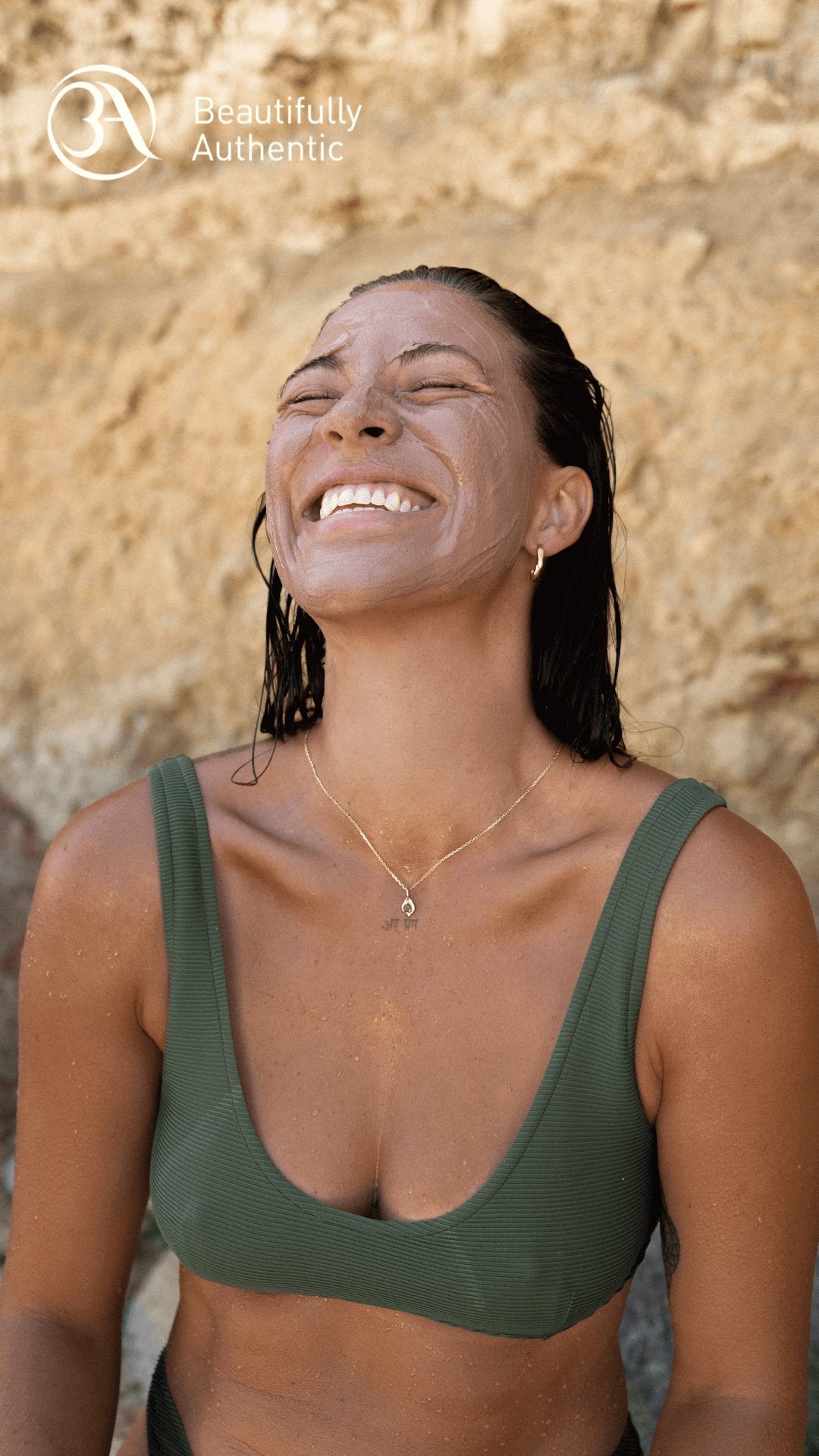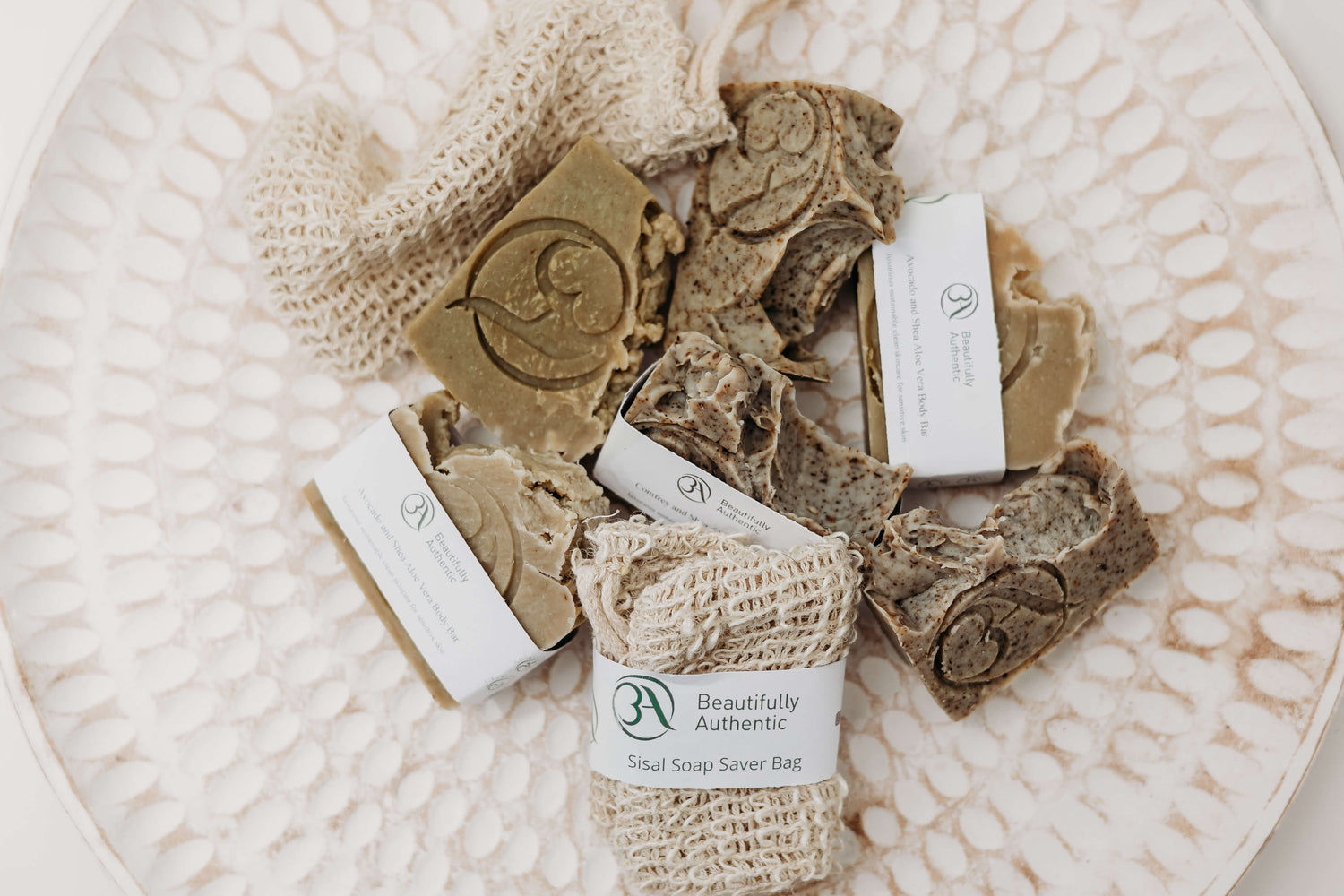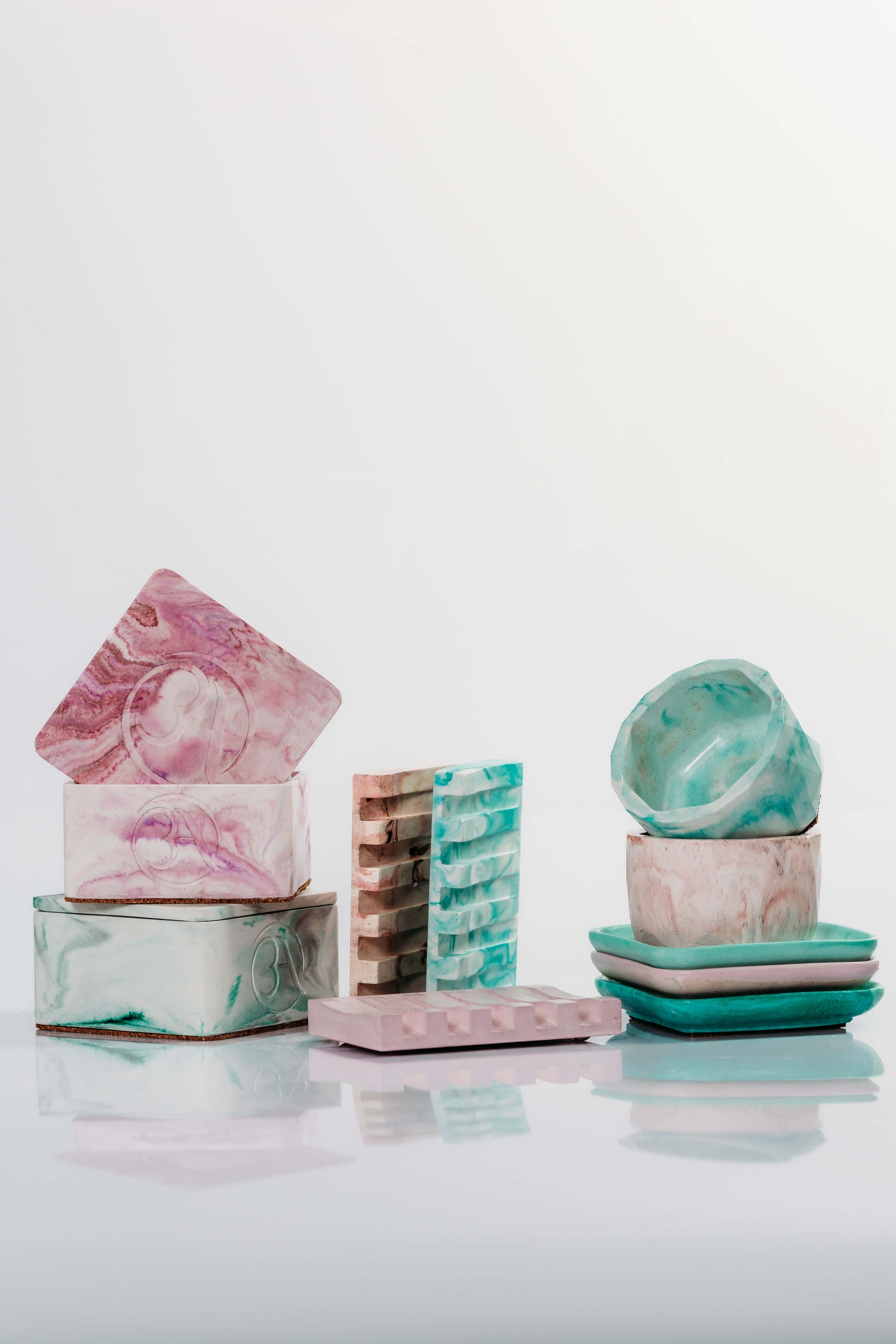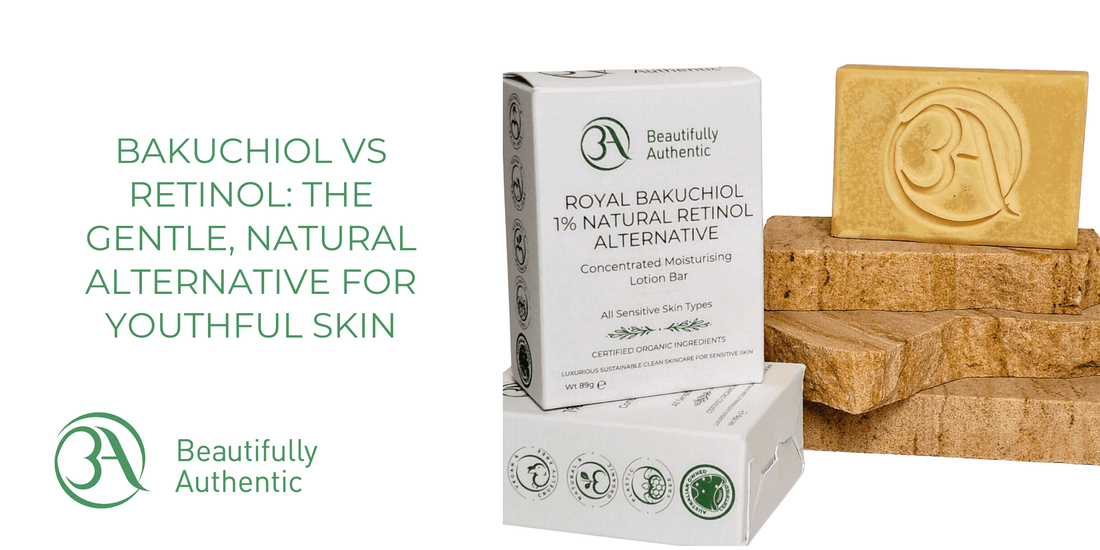
Bakuchiol vs Retinol: The Gentle, Natural Alternative for Youthful Skin
For decades, retinol has been hailed as the gold standard of anti-aging skincare. It softens fine lines, smooths texture, and boosts cell turnover — but it often comes with unwanted baggage: redness, peeling, and increased sun sensitivity. For those with delicate or reactive skin, retinol can feel more like a battle than a solution.
That’s why bakuchiol (pronounced buh-koo-chee-ol) is creating such a stir. Derived from the babchi plant, this botanical active is being celebrated as a gentler, plant-powered alternative to retinol. It offers many of the same benefits — firmer, smoother, more radiant skin — but with far less irritation.
What makes bakuchiol so special isn’t just its results, but the way it fits into a slow beauty philosophy: gentle, sustainable, and supportive of long-term skin health. In this article, we’ll explore the science behind bakuchiol, how it compares to retinol, and why it’s becoming a must-have for sensitive skin and eco-conscious beauty lovers alike.
What is Bakuchiol? Botanical Origins and Skin Benefits
Bakuchiol (pronounced “buh-koo-chee-ol”) is a natural compound extracted from the seeds and leaves of the Psoralea corylifolia plant, commonly known as babchi. This plant has a rich history in Ayurvedic and Traditional Chinese medicine for treating various skin ailments. Chemically, bakuchiol is a type of meroterpene phenol – a class of compounds known for potent bioactivity. It is one of around 100 bioactive constituents identified in babchi, alongside flavonoids and coumarins.
What makes bakuchiol stand out in modern skincare is its remarkable range of benefits for the skin. Research has shown that bakuchiol can diminish fine lines and wrinkles and improve elasticity – essentially targeting the same anti-aging outcomes as retinol. In the skin, it acts as an antioxidant and anti-inflammatory agent, helping to soothe redness, calm acne-related inflammation, and protect against bacteria that can cause blemishes. Unlike some harsher actives, bakuchiol is gentle: it helps even out skin tone and boost cell regeneration with little to no irritation, and it’s suitable for virtually all skin types. This means even those with sensitive skin can potentially use bakuchiol twice daily without the redness or peeling often seen with retinol treatments.
In short, bakuchiol is a versatile botanical ingredient that addresses multiple skin concerns at once. It offers a naturally derived route to smoother, clearer, and firmer skin – which explains why it’s quickly becoming a star in cosmeceutical circles.
How Does Bakuchiol Work on the Skin?
You might be wondering how a plant extract can mimic retinol’s effects. Interestingly, bakuchiol works on the skin in a retinol-like fashion, but via its own unique mechanism. Studies suggest that bakuchiol can activate pathways in skin cells that stimulate the production of collagen and elastin – proteins that keep skin firm and smooth. In fact, bakuchiol has been shown to regulate gene expression in the skin similar to retinol, boosting types of collagen that plump the skin. This helps reduce the appearance of wrinkles and fine lines over time.
What’s notable is that bakuchiol achieves these benefits without directly binding to retinoic acid receptors (the way true retinoids do). That’s actually a good thing: it means bakuchiol can sidestep some of retinol’s notorious irritation triggers while still “tricking” the skin into renewing itself. Researchers have found that bakuchiol stimulates cell turnover and repair, encourages the extracellular matrix (the supportive network in skin) to regenerate, and even provides antioxidant protection to combat photoaging. This antioxidant prowess is something retinol lacks; bakuchiol can neutralize free radicals and reduce inflammation, helping to guard skin from environmental damage.
In essence, bakuchiol offers a multi-faceted approach to skin health. It not only addresses wrinkles and hyperpigmentation by encouraging collagen and cell renewal, but also calms the skin and fends off oxidative stress. This dual action – rejuvenating and soothing – underpins bakuchiol’s reputation as a gentler route to radiant skin.
Bakuchiol vs. Retinol: Efficacy and Sensitivity
Retinol has long been celebrated as the “gold standard” of anti-aging — but for many, that gold comes at a cost. Redness, flaking, peeling, and sun sensitivity can make the journey feel more like punishment than skincare.
Bakuchiol offers another way. This plant-powered active delivers many of the same benefits as retinol — smoother texture, firmer skin, and a brighter, more even tone — without the harsh side effects. Think of it as retinol’s gentler sibling: steady, nurturing, and kind to even the most delicate skin.
✨ The science supports it: In a study published in the British Journal of Dermatology, bakuchiol twice daily produced results comparable to retinol — fine lines softened, pigmentation reduced — but with far less irritation. While retinol users battled redness and peeling, bakuchiol users enjoyed calmer, more balanced skin.
✨ The experience feels different too: Retinol often demands a slow, careful “ramp-up” to avoid irritation. Bakuchiol, on the other hand, can often be used morning and night from day one. It’s stable in sunlight, doesn’t increase UV sensitivity, and works harmoniously alongside your other skincare rituals.
✨ For sensitive souls: Where retinol can feel like a battle, bakuchiol feels like a ritual. It restores skin rhythm instead of disrupting it, offering a pathway to renewal that aligns with the principles of slow beauty — gentle, sustainable, and deeply effective over time.
Latest Research and Expert Insights
Although bakuchiol has centuries of traditional use behind it, it’s relatively new to modern dermatology – and researchers have been eagerly studying it in recent years. Early findings are very encouraging. A comprehensive 2024 review noted that “recent studies highlight bakuchiol’s efficacy in reducing wrinkles and hyperpigmentation, with better tolerability than retinol”. It also emphasized bakuchiol’s extra antioxidant benefits and “lack of side effects,” concluding that bakuchiol is a “natural, effective retinol alternative” that’s especially suitable for sensitive skin.
Dermatologists are increasingly supportive of bakuchiol as well. “If you’ve got sensitive skin, bakuchiol may be a good alternative to retinol,” advises Dr. Shilpi Khetarpal, a dermatologist, adding that it can address fine lines, wrinkles, and uneven tone without the usual irritation. Experts point out that bakuchiol is an option for those who can’t tolerate retinoids or want a more natural approach, and it’s even being explored as an adjunct to traditional retinoids. Interestingly, one study found that pairing bakuchiol with retinol (specifically retinaldehyde) amplified the anti-aging effects of the retinoid without increasing irritation, thanks to bakuchiol’s antioxidant and stabilizing properties. This suggests bakuchiol is not only useful on its own, but might also play a role in boosting other skincare actives.
It’s worth noting that, because bakuchiol hasn’t been around as long as retinol, the body of evidence is still growing. Retinoids have been studied extensively since the 1980s, whereas bakuchiol’s high-profile studies have involved dozens (not hundreds) of participants so far. The consensus among scientists is that bakuchiol is “promising, but [still] warrants additional testing” to fully validate its long-term benefits. In practical terms, this means that while many users and experts are seeing great results, ongoing research will continue to clarify exactly how best to use bakuchiol and what skin transformations you can expect over the long haul. The good news is that momentum is building – research publications on bakuchiol have been rising each year, and excitement is high in the dermatology community.
Clean, Sustainable Beauty Credentials
Aside from its performance, bakuchiol resonates with the clean and sustainable beauty movement. It’s a botanical extract – sourced from nature rather than synthesized in a lab – which appeals to consumers looking for greener, plant-based skincare options. In fact, the push for natural ingredients is a big reason bakuchiol has risen in popularity: today’s skincare lovers (led by millennials and Gen Z) are seeking out natural, sustainable alternatives to synthetic chemicals, and brands are responding by formulating with actives like bakuchiol. This ingredient ticks all the clean-beauty boxes: it’s vegan, typically cruelty-free, and often included in formulations that avoid questionable additives.
From a sustainability standpoint, bakuchiol’s origin in a plant (babchi) means it can be cultivated as a renewable resource. Efforts are underway to ensure ethical sourcing and avoid overharvesting wild populations of the babchi plant – important for maintaining its eco-friendly promise. Additionally, bakuchiol is often stable enough that it doesn’t need heavy packaging to protect it from light and air the way retinol does. Its photostability (ability to not degrade in sunlight) can translate to longer-lasting products and less waste. And because bakuchiol formulations don’t require strong preservatives to mitigate irritation (unlike some harsh retinol creams), they can sometimes be made with more biodegradable, skin-friendly preservative systems.
Another angle of sustainability is inclusivity and longevity – ensuring products can be used by more people, with less waste. Bakuchiol excels here by being suitable for a wide range of users, including those with sensitive skin, those avoiding synthetic chemicals, and even expecting mothers who must steer clear of retinoids. By accommodating these groups, bakuchiol helps reduce the need for “one product for this group, another for that group,” simplifying routines and potentially reducing consumption. Its gentle nature means people are less likely to abandon the product (whereas many folks give up on retinol due to irritation), so you actually finish the bottle you buy – a small but meaningful win against wastefulness.
Embraced by Sensitive Skin and Eco-Conscious Consumers
It’s no surprise that bakuchiol has become a darling of sensitive-skin gurus and eco-conscious consumers alike. For those who have felt left out of the retinol club because their skin couldn’t handle the harshness, bakuchiol is a revelation. It allows people with conditions like rosacea, eczema, or just finicky skin to partake in the benefits of a “retinol-like” routine without the flare-ups. As one dermatologist-driven trial showed, a bakuchiol moisturizer significantly improved skin smoothness and signs of aging in women with sensitive skin. Users often report that their skin feels calmer and more hydrated when using bakuchiol products compared to traditional retinol creams, which can strip moisture.
On the consumer trends front, bakuchiol is riding a wave of popularity. The clean beauty market has seen a surge of serums and creams proudly advertising bakuchiol as a hero ingredient. Social media skincare influencers have helped by showcasing before-and-afters, and word-of-mouth has framed bakuchiol as “the natural retinol alternative that actually works.” Retailers are expanding their offerings of bakuchiol-infused products, from night oils to eye creams, to meet the growing demand. Industry analysis confirms this momentum: the global bakuchiol market is growing steadily as more brands and consumers embrace plant-derived, sustainable skincare options. In fact, bakuchiol’s appeal spans both luxury brands (who value its high-performance gentleness) and indie green beauty lines (who love its natural origin and safety profile).
Most importantly, bakuchiol is helping to democratize anti-aging skincare. People who could not use retinol now have a chance to see similar benefits, and those who care deeply about environmental impact can treat their skin without compromising their values. It embodies the idea that effective skincare can be beautifully authentic – aligning with our natural preferences and sustainability goals while delivering real, clinical results.
Bakuchiol proves that effective skincare doesn’t need to be harsh to be powerful. It delivers many of the same results as retinol — smoother skin, improved elasticity, a brighter tone — but with a gentler touch, making it accessible to those who have long felt excluded from the world of actives.
It’s more than just a trend: bakuchiol reflects the shift towards slow, sustainable beauty — products that are plant-powered, mindful, and designed to restore balance instead of overwhelm. For sensitive skin especially, it offers a new way forward: one rooted in care, honesty, and harmony.
✨ Discover the ritual for yourself with our Royal Bakuchiol 1% Natural Retinol Alternative Lotion Bar — a customer favourite that brings science, sustainability, and slow beauty together in one concentrated, skin-loving bar.

